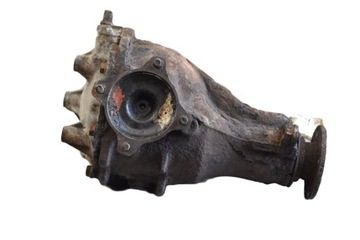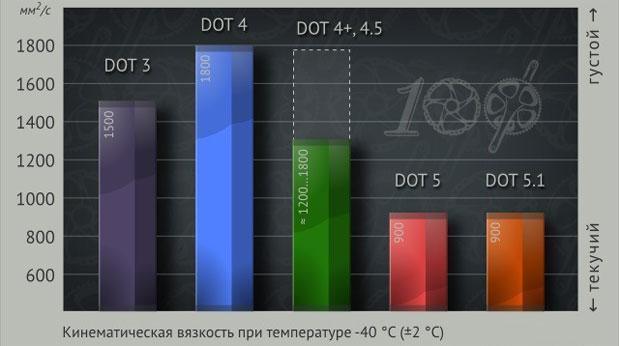
At what temperature does brake fluid freeze?
Content
Brake fluid freezing point according to standard
It is important to understand that there is no strict recipe for the production of brake fluids. The standard developed and implemented by the US Department of Transportation (DOT) describes quite a few fluid requirements for hydraulic brake systems. But there are no strict proportions or frames.
For example, for the boiling point of a brake fluid, only the lower limit is indicated. For the most common DOT-4 product in the Russian Federation, this figure is not lower than +230°C. In practice, the actual boiling point of premium DOT-4 brake fluid that is not enriched with water often exceeds +260°C.
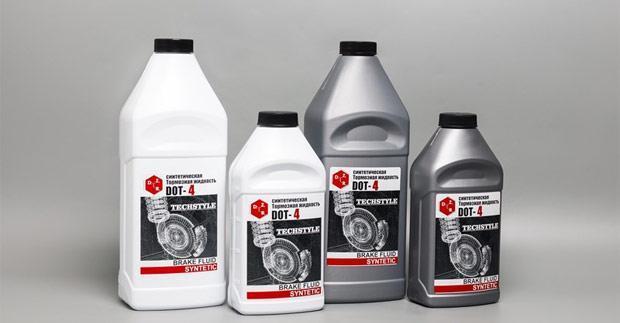

A similar situation is observed with the pour point. The standard regulates not the freezing point itself, but the viscosity at -40 ° C frost. The table below summarizes the maximum allowable viscosity at this temperature for current brake fluids.
| DOT-3 | 1500 cSt |
| DOT-4 | 1800 cSt |
| DOT-5 | 900 cSt |
| DOT-5.1 | 900 cSt |
All these values are acceptable for the performance of brake systems designed for a particular fluid at temperatures down to -40°C. For performance at lower temperatures, the standard for conventional DOTs is not responsible. For more severe climates, modified versions of brake fluids have been developed, in which the emphasis is on low-temperature qualities.
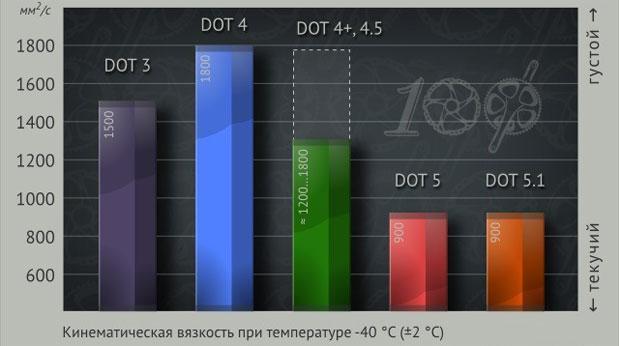

Real freezing temperature and its practical meaning
Brake fluid plays the role of a carrier of energy from the master brake cylinder to the workers. When you press the brake pedal, pressure is created in the main torus cylinder, which spreads along the line, acts on the pistons of the working cylinders and presses the pads to the discs.
When a certain viscosity is reached, the liquid will not be able to break through narrow and long lines. And the brakes will fail, or their work will be very difficult. According to various estimates, for various systems, this threshold is in the range of 2500-3000 cSt.
At what temperature does brake fluid freeze in real conditions? The network has a lot of experiments with the cooling of various brake fluids below -40 ° C. The trend is as follows: all fluids, when passing through the critical temperature, still retain fluidity, and in theory they will function normally in the brake system. However, the viscosity of low cost fluids and lower DOT options increases more rapidly during cooling.
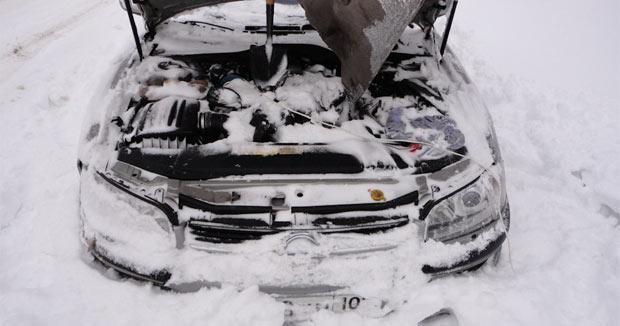

Upon reaching the -50°C mark, most DOT-3 and DOT-4 turn into honey or even harden to a tarry mass (cheap options). And this is with the condition that the liquid is fresh, not enriched with water. The presence of water lowers the freezing resistance threshold by 5-10°C.
Silicone brake fluids and formulations based on polyglycols (DOT-5.1) are more resistant to freezing. However, even these liquids thicken significantly closer to –50°C. And it is difficult to say whether they will work in systems designed specifically for low-viscosity brake fluid options.
Therefore, only one conclusion can be drawn: it is guaranteed that the brake fluid will not freeze at temperatures down to -40 ° C, as indicated in the standard.


Watch this video on YouTube

